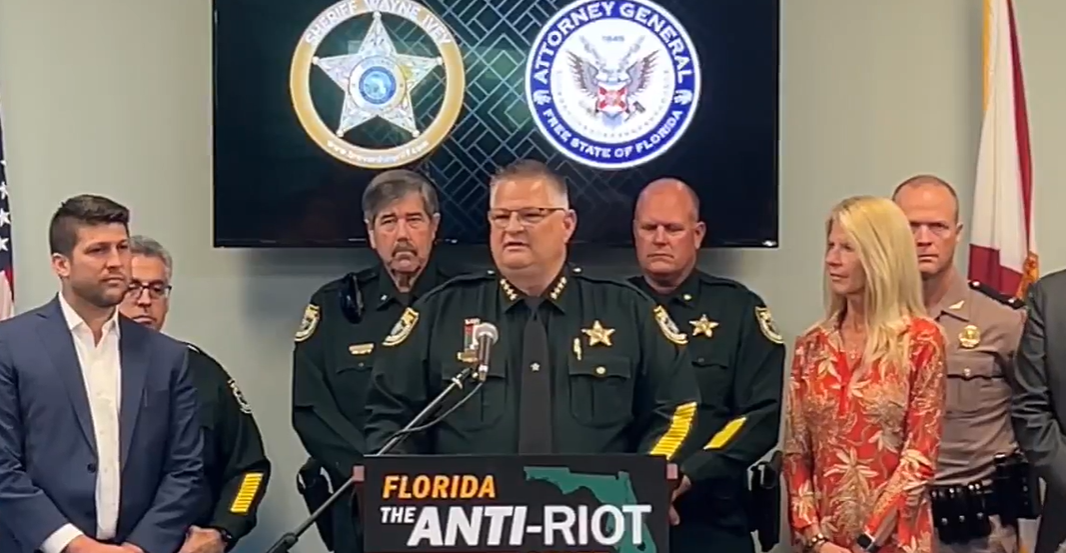On June 12, two days before “No Kings” protests took the country by storm, Florida Attorney General James Uthmeier and Brevard County Sheriff Wayne Ivey declared Florida to be an anti-riot state. During a press conference in Titusville, Ivey vividly and unapologetically described the consequences that violent or unlawful protesters would face in his jurisdiction.
To begin his statements, Ivey made one thing clear: “Peaceful protests are part of our democracy. We invite people to share their opinions, that’s what our country is all about.”
However, Ivey was quick to add that protests must remain peaceful and lawful. “If you let it turn violent,” Ivey warned, “I believe I can speak for my fellow sheriffs around the rest of the state: you don’t wanna let it happen.”
In his address, Ivey delineated various ways that protesters could be punished for their decisions to spit on or hit officers, block roadways, or resist arrest. Ivey warned that such behavior may result in trips to the hospital, imprisonment, dog bites and being dragged on the pavement. The severity of punishment varied based on the severity of the crime.
In the most straightforward and clearly threatening line of his address, Ivey said that if protesters decided to throw bricks or fire bombs at officers or point guns at them, law enforcement would “kill [them] graveyard dead.”
Ivey’s delivery has been criticized, which is unsurprising in a culture that taboos strong language unless it comes from unruly protesters attacking law enforcement.
Even some in ideological agreement with Ivey’s statements are wary of the language he used to communicate his thoughts. These critics are unsure that such strong language was necessary, especially in Brevard County.
In Florida Today, John Torres wrote, “The people of Brevard are passionate, but they are good. Those who protest here obey laws.… Making comments like [Ivey] did only serves to incite and alienate those who have different opinions.”
Torres argued that because the Brevard area is peaceful, Ivey’s threatening words are unnecessary.
This argument fails to recognize the power that lawless behavior has to spread and destroy. In Los Angeles on June 6, protests broke out against the enforcement of immigration law. In roughly one week, the protests spread across the nation, culminating in the “No King” protests that took place on Flag Day. Anti-law enforcement messages spread like wildfire, stemming from the protests that went unchecked (and even encouraged) in California.
When violence is encouraged and spread, officers like Ivey are told not to maintain law and order.
As Molotov cocktails ignite fiery protests beyond Los Angeles, Ivey’s words can inspire other leaders to step up and take responsibility for the violence taking place in their states. Because Los Angeles protesters were willing to make their thoughts and actions public, Ivey is willing to make his threats public as well.
While leaders like California Gov. Gavin Newsom are willing to sit back and let their cities burn around them, our country needs leaders like Ivey who unapologetically articulate and effectively enforce the law. As Ivey simply put it, “We’re not gonna play. This has got to stop.”
























